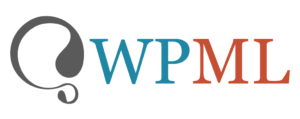Nowadays it’s unthinkable to develop a webpage without a Content Management System, or CMS in short. They offer many advantages such as:
- Allowing the user to focus fully on the content, without prior knowledge in technical design and/or programming.
- Near immediate startup without needing to worry abut techincal isues regarding user management, security, compatibility with different browsers and devices, usability and a large etcetera of requirements which need to be sufficed by any website in the current day and age.
- Large savings in development and posterior maintenance costs.
- Numerous functionalities which can be extended and improved during the application’s life span.
- Allowing the user to focus directly on the content to publish without needing prior technical knowledge about design and/or programming.
Developers also benefit from these perks as we recieve more orders in a shorter time span and at a reduced cost. However, using a CMS increases the need of resources in our server. As a rule of thumb, the more posibilites a CMS allows, the greater its impact on the performance of our website will be. This turns the platofrm’s biggest incentive into its Achilles’ Heel. We need to find balance between performance and resource cost.
Another important matter to consider is the learning curve and the easiness to adapt the system to our needs. In some cases it might be desirable to start development from scratch. However, there is a CMS which stands out precisely because it’s simple and easibly adaptable: WordPress, born initially as a blog platform, but which overtime has become a content management system capable of satisfying the needs of nearly every project.
We can see this in numbers. Out of all CMS’s WordPress is leader, way ahead of the rest with 28% of the total active webpages on the Internet and 59.7% of those which use a CMS. On the other hand it’s the only one which shows a constant growth overtime, beating Joomla, its nearest competitor, by nearly 10 times. I am a living example of this process, after testing the main CMS’s (Joomla, Prestashop, Drupal, CMS Made Simple to name a few) I have come to the conclusion that WordPress is the most simple and versatile out of them all. It’s by far the first option to consider for any webpage application.
In my opinion, the main reasons of this success are:
- A simple and completely automated installation process. Just a couple of clicks, fill a form with basic information and we’ve got a completely functional webpage in mere seconds.
- Even though it started off as a blog platform, it is now a proper product valid for every type of project which is in constant development. We can implement from a small personal page up to a corporative web, an online store, a social website, etc.
- A simple and intuitive user interface, any user can utilize it almost inmediately, independent of their technical knowledge.
- Its requirements are within the limits offered by every hosting service, even those which are for free. In this point I emphasize the matter that I mean the requirements of the WordPress core. Its extensions (themes and plugins) may have higher requirements, depending on the functions they serve. For example, WordPress requires 42MB of space, yet Woocomerce needs 256MB.
- It arguably has the largest developer community in the world, which translates into whichever our need is, we’re likely to find numerous plugins and/or themes with the functionality we’re searching for. We must however not overuse them for reasons previously exposed and, as we’ll see in this site, it’s not always necessary.
- It’s perfectly docummented in every aspect. This simplifies matters a lot when adding new functionalities or upgrades. Note to developers, it is not necessary, much less recommended, to modify the source code to incorporate our work. In the docummentation we’ll see how we can work knowing we will still benefit from the improvements introduced in newer versions.
I will try to offer the most complete vision of WordPress and make the transition as easy as possible to those who, like me, come from other platforms. The contents published will cover every aspect and step from hosting selection and server setup and startup, up to customization and incorporation of new functionalities into our WordPress.




